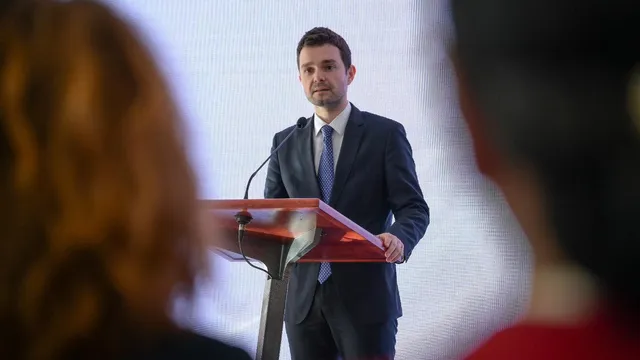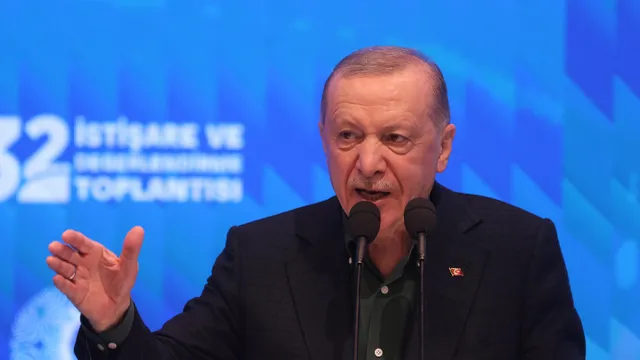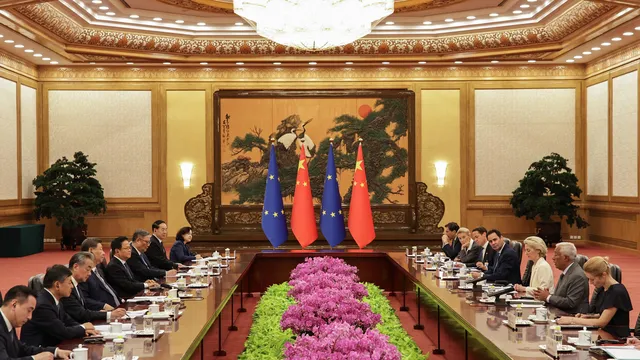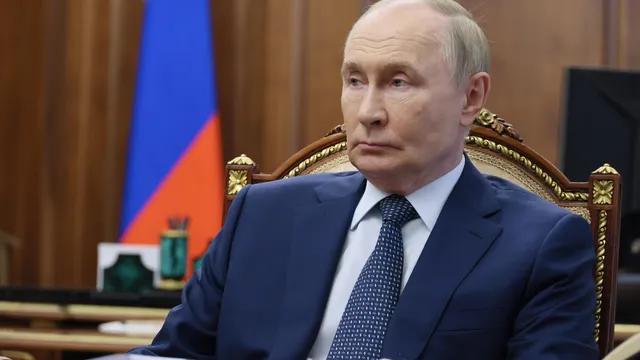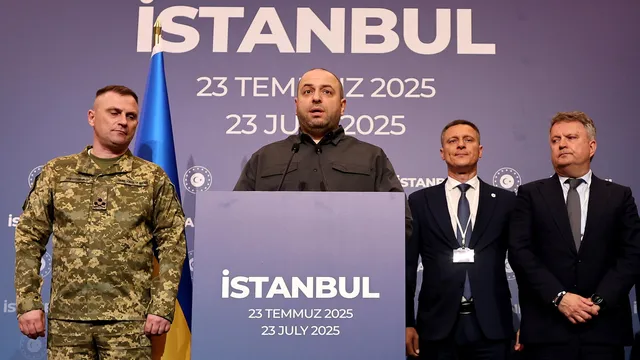North Macedonia’s Foreign Minister Timcho Mucunski has publicly challenged the EU Negotiation Framework and the conditions imposed by all member states of the Bloc, BGNES reported.
“This is one of the most harmful documents in our history,” Mucunski said in reference to the Protocol from the Second Session of the Joint Intergovernmental Commission, an integral part of the framework.
“The initiative to refer the Protocol’s constitutionality and legality to the Constitutional Court will confirm whether constitutional amendments are indeed the only obstacle preventing Bulgaria from unblocking our EU integration process,” the minister told Kanal 5. The so‑called “initiative” was submitted by former MP Lilyana Popovska.
Mucunski accused his compatriots of being misled by talk of a “Bulgarian blockade.” Since 2022, North Macedonia has been required to strictly implement the Negotiation Framework.
“Bulgaria, in its official positions to date, says the only problem is constitutional amendments. Unfortunately, I don’t believe that, because I follow both the rhetoric and what is actually being done — including in the European Parliament. Above all, the development of this situation will confirm whether only constitutional amendments are the issue, or if there is something more. Primarily because the protocol in its content goes beyond the spirit of the Treaty of Good‑Neighbourliness, under which Bulgaria is itself obliged to support our EU integration path. We are monitoring the situation; we have several scenarios, we’re thinking about what might happen. Of course, our priority remains the path to EU membership, unlike our predecessors,” Mucunski said, adding:
“What my predecessor dared to sign is, frankly, catastrophic and could create many negative and harmful consequences. But at this moment, it has no mandatory legal effect and produces no legal consequences for the state. There are elements, things and details — even some aspects — that do not correspond to the values of the 21st century and the values of the EU.”
Timcho Mucunski believes that relations between Skopje and Sofia must be progressive, forward-looking, and focused on finding solutions.
“We expect Sofia to finally move beyond 19th-century rhetoric. No EU member state can constantly invoke human rights standards while simultaneously denying rights related to our self-determination, our interpretation of our national history, our language, and other elements that are part of our identity as a people. These are basic human rights. Our bilateral relations must aim to find solutions to all these challenges and look ahead toward advancing the country toward EU membership,” Mucunski said.
He has not had formal communication with his Bulgarian counterpart Georg Georgiev but clarified that there are likely to be further opportunities for meetings after the summer holidays.
“We are open to discussion. All meetings so far have been initiatives on our part. We need to meet, to openly discuss and seek solutions. We understand that we are the country wishing to start EU accession negotiations and that this places urgency on us to find a solution. There is a clear, obvious, and unambiguous denial of identity and language. It is a fact that an EU member state denies Macedonian identity and, through that denial, creates an obstacle. This obstacle can have long-term consequences,” Mucunski stated.
The foreign minister expressed regret that “the rhetoric from Sofia is terribly negative,” and also that the opposition shares this rhetoric: “The Social Democratic Union, consciously or unconsciously, has adopted Bulgaria’s rhetoric, whether intentionally or unintentionally.”
---
Just a few days ago, Mucunski once again misled his fellow citizens by claiming that “nowhere in the Treaty of Friendship with Bulgaria are constitutional amendments mentioned,” attempting thereby to justify his country’s refusal to fulfill the European conditions necessary to begin substantive accession talks with Brussels.
Indeed, the constitutional amendments are not a requirement of the 2017 Treaty of Friendship, Good Neighbourliness and Cooperation — they are a condition set forth in the EU Negotiation Framework itself.
BGNES reminds that the Protocol from the Second Session of the Joint Intergovernmental Commission — established under Article 12 of the Treaty — states that Skopje agrees that the next EU Intergovernmental Conference for opening membership negotiations will be held only after the Constitution of North Macedonia is amended to include Bulgarians as a state-forming people in the Preamble and in two specific articles of the Constitution.
In the same Protocol, the Government of the Republic of North Macedonia, in accordance with Article 11(5) of the Treaty, reaffirms its commitment that nothing in its Constitution may be interpreted — now or in the future — as a basis for interference in the internal affairs of the Republic of Bulgaria, especially under the pretext of protecting the status and rights of persons who are not citizens of North Macedonia.
This clause, de facto and de jure, demonstrates that Skopje makes no claims for the recognition of a so-called “Macedonian minority” in Bulgaria.
The Protocol also stipulates that the hate speech directed at Bulgarians and Bulgaria — widely supported by institutions and the media in North Macedonia — must come to an end. | BGNES

 Breaking news
Breaking news
 Europe
Europe
 Bulgaria
Bulgaria
